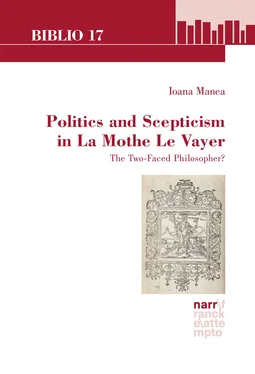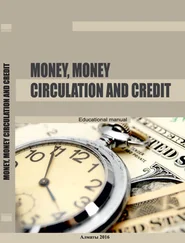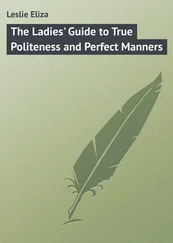The idea of the sharp division between what is being said in private and in public has recently been challenged mostly because La Mothe Le Vayer chose to publish his works.15 Despite agreeing with previous scholarship on the fact that, when writing for the prince, La Mothe Le Vayer argues for “moderation” against “excess”, Gouverneur holds that, in fact, he aims to become involved in the political field in a “much more global and radical manner, through the libertine use of scepticism and the aesthetics of prudence” (“de manière bien plus globale et radicale, par l’usage libertin du scepticisme et de l’esthétique prudentielle”).16 Following this remark, it would have certainly been interesting to see what is the form taken by the aspiration for a complete action in the political field in the treatises for the future king, which are obviously privileged instruments for acting on politics. Nevertheless, when studying La Mothe Le Vayer’s works of princely education, Gouverneur seems to focus more on topics that are either related to the traditional knowledge that the king is supposed to acquire and that concerns its hierarchical structure, or to a certain moderation that concerns the limitation of the abuses to which the reason of State is likely to open the way.17 Although he is not interested in taking part in the political action, La Mothe Le Vayer, as perceived by Cavaillé, needs the “show” (“spectacle”) offered by politics in order to practise his “strength” (“fermeté”) and “singularity” (“singularité”) through the profit he makes of looking critically at it.18 Yet the idea of the critical look at a power that tolerates opposition as long as it is expressed through “dis/simulation”19 may have gained deeper insights into La Mothe Le Vayer’s elusive thought through the analysis of the relationship between dissidence and the teaching books for the Dauphin, which needless to say had a special connection with political authority.
Despite being questioned, as we have already seen, the distinction between what is meant by La Mothe Le Vayer for the two spheres, the public and the private, still influences the attention enjoyed by the books that he wrote in order to support or, apparently, to undermine the powerful. In studying this dichotomy that seems to be more alleged than actually studied, my book will deal with the apparent ambivalence of the intellectual La Mothe Le Vayer, who built his career on writing at the same time for and against power. Therefore, my study will not only examine the books that he is said to have written against the powerful, but also those that he wrote for the powerful. The element that will underlie my approach to his works will be scepticism, which La Mothe Le Vayer acknowledges as his distinctive feature as a writer. For this purpose, my first chapter studies, on the one hand, his relationship to the two sceptical traditions inherited from Antiquity, Pyrrhonism and the New Academy and, on the other hand, the influence exerted by scepticism on his writing, his view of the world and the explanation it was given by science, which at the time was making great progress. The following chapter will go more thoroughly into the analysis of scepticism, by analysing what is usually considered to be its subversive role in the works by La Mothe Le Vayer that seem to aim at weakening the political regime and its representatives. As a counterpart to the chapter dealing with the works that apparently sap the power, the third chapter is about the treatises that La Mothe Le Vayer wrote in order to serve the power and especially in order to educate the prince. In so doing, this chapter will focus on bringing out the knowledge that the author aimed to transmit to the king about concepts like the reason of State, which were highly debated by the political literature of the moment.
After having examined La Mothe Le Vayer’s apparently ambivalent argumentation on power, the book ends with a chapter built around a question that is still relevant nowadays: should an intellectual who perceives the shortcomings of the politicians and of the regime they represent withdraw from public life or be actively involved in it in order to contribute to the diminishing of its faulty aspects? In order to answer this question, my research will compare the two apparently contradictory types of texts written by La Mothe Le Vayer by relying on concepts like intertextuality,20 which makes possible the analysis of the elements that are common to several texts. Further, the aspects revealed by the comparison between the two types of works will be studied from the perspective of prudence, which was a key-concept in the political treatises of the time. Concepts belonging to fields like literary studies, political or moral philosophy will be used for bringing out the attitude towards the involvement in politics of the two-faced philosopher that La Mothe Le Vayer seems to be at first glance.
Chapter 1. The Philosopher La Mothe Le Vayer: Incurable Sceptic
1.1 The Philosopher La Mothe Le Vayer: Philosopher with an Insatiable Appetite for Books
When speaking of one of his favourite activities, which consists in writing books, La Mothe Le Vayer does not deprive himself of using irony: his passion for writing is sometimes so strong that it is comparable to the “bite of a tarantula, which is said to irrepressibly make those that it bit once dance every year” (“morsure de la tarentule, qui fait danser tous les ans, dit-on, ceux qui en ont été piqués une fois, sans qu’il s’en puissent empêcher ”).1 Similar to an incurable disease, the passion for writing transforms the individuals that it seizes, among whom the author himself, into some puppets who, incapable of controlling themselves, may provoke the amusement of those who are observing them. The deviance that results from the irresistible thirst for writing acquires pathological dimensions when it is associated with lunacy. Within the vast lunatic asylum that is the world, where “everyone enjoys their favourite pet project” (“chacun se plaît à jouer de sa marotte”),2 writing is not preserved from connections with madness: “To which I have to add, that among the lunatic activities of men, it seems to me that we can add that of writing so many books, which are being printed every day” (“Sur quoi il faut que j’ajoute, qu’entre les folles occupations des hommes on peut bien mettre, ce me semble, celle de composer tant de livres qui s’impriment tous les jours”).3
When it comes to his particular case, La Mothe Le Vayer weighs the advantages and disadvantages of writing in order to show how pointless it is to engage in it:
for, if I were really wise, perhaps I would not be having fun by putting down, as I am doing right now, my little daydreams, regardless of the such sweet entertainment that they provide me. Since for one or two people who could be grateful to me for it, isn’t it certain that a hundred others will probably wish me harm?
que si j’étais bien sage, je ne m’amuserais peut-être pas à coucher par écrit, comme je fais présentement, mes petites rêveries, quoiqu’elles me fournissent un si doux divertissement. Car pour une personne ou deux qui m’en pourront savoir quelque gré, n’est-il pas certain que cent autres m’en voudront vraisemblablement du mal ?4
At the same time that, following the Erasmian tradition, he immerses himself in a paradoxical eulogy of folly, aimed at denouncing the corruption that reigns over the world, La Mothe Le Vayer does not hesitate to include in the eulogy the very action that allows him to accomplish it, namely writing.5
The exaggeration of the uselessness of composing books results in an occasional irony, which should, however, not lead to the conclusion that he does not devote himself to writing as seriously as possible. Addressed to Tubertus Ocella, La Mothe Le Vayer’s alter ego in the first dialogue from the series La Promenade. Dialogues (1662), the words of Marcus Bibulus who, according to René Pintard, is, in fact, Samuel Sorbière,6 prove the extent to which writing is likely to envelop him: “Given what has entertained us throughout our whole life, neither you, nor I, can find a better ending for our life than a death quill in hand, like the soldier who dies keeping the sword in his hand, the pilot holding the helm, and the speaker speaking” (“C’est que nous ne pouvons mieux finir vous et moi, vu ce qui nous a divertis toute notre vie, qu’en mourant la plume à la main, comme le soldat l’épée au poing, le pilote tenant le timon, et l’orateur en discourant”).7 Despite being less visible in the public space than the individuals who have more practical jobs, a writer like La Mothe Le Vayer is not different from them when he identifies himself with writing to the point of being inseparable from it until the last moments of his life. This is all the more so since, by applying to writing the reflections on the authority exerted by custom over the individuals’ behaviour, the author imagines that he will continue to write even after his death: “In case it is right that we preserve in the afterlife some of the habits that we strongly acquired in this life; […] you should not have the least doubt that you will see me one day with a book and a rather badly sharpened quill in hand” (“Tant y a que s’il est vrai, que l’on conserve en l’autre monde quelques-unes des habitudes qu’on a puissamment contractées en celui-ci ; […] ne doutez point que vous ne m’y voyez aussi quelque jour un livre au poing, et une plume assez mal taillée à la main”).8 By taking advantage of the belief in custom, which thanks to its force, is meant to survive in the hereafter, the author emphasises his identity as a man of letters who engages simultaneously in reading and writing. To his mind, the two activities are inseparable and nourish each other reciprocally. Keen on scholarship, La Mothe Le Vayer thinks that, in order to be prolific, a writer must continuously feed on other writers’ works:
Читать дальше












